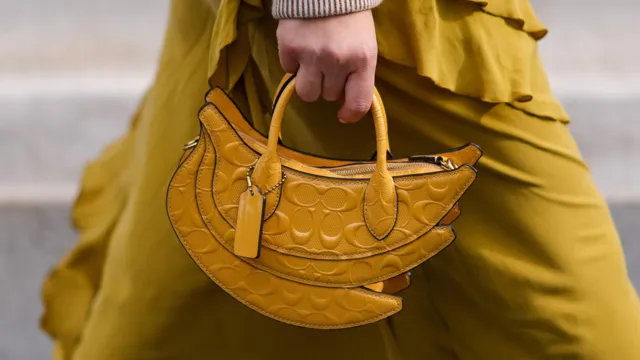The US competition watchdog has filed a lawsuit to block fashion accessory giant Tapestry’s $8.5bn (£6.9bn) acquisition of rival Capri.
Tapestry, which owns handbag makers including Coach and Kate Spade, is seeking to acquire Capri, whose brands include Michael Kors. The US Federal Trade Commission (FTC) argues that allowing the deal would eliminate direct competition between Tapestry’s and Capri’s brands.
Tapestry responded, stating that “the FTC fundamentally misunderstands both the marketplace and the way in which consumers shop”.
Both companies collectively employ about 33,000 staff worldwide, but the FTC contends that the merger could lead to reduced wages and benefits for employees.
Coach and Kate Spade, known for their “accessible luxury” handbags, offer quality leather and craftsmanship products at affordable prices.
Tapestry proposed the acquisition of Capri in August, aiming to create a US fashion powerhouse capable of competing against larger European rivals like Chanel, Hermes, and Louis Vuitton parent company LVMH.
The FTC requested additional information on the deal in November. However, announcing its decision to take legal action, the FTC argued that the merger would give Tapestry a dominant market share.
Tapestry countered by stating that “the FTC has chosen to ignore the reality of today’s dynamic and expanding $200 billion global luxury industry”.
Capri, which also owns Versace and Jimmy Choo, asserted that “this transaction will not limit, reduce, or constrain competition”, emphasizing the fiercely competitive and highly fragmented nature of the global luxury industry.
The FTC’s move to block the merger, using a new tactic under updated merger guidelines, suggests concerns about reduced competition affecting hourly workers who may experience lower wages due to decreased competition for employees.
While the deal received regulatory clearance from the European Union and Japan earlier this month, the companies must close the deal by 10 August.

























































